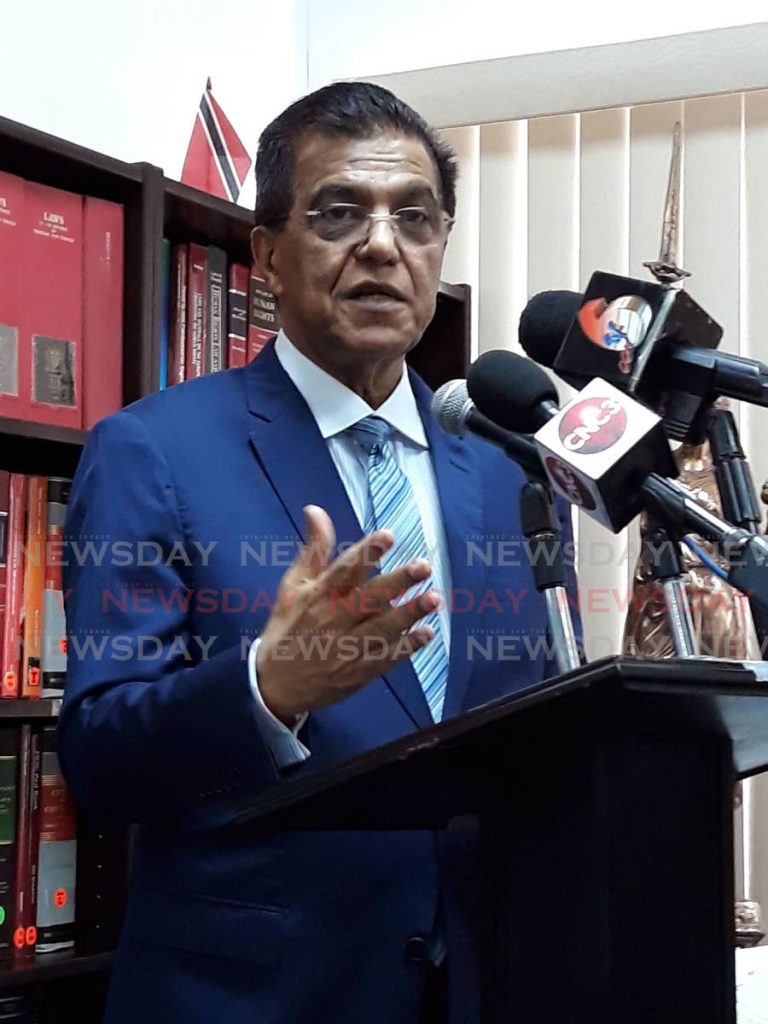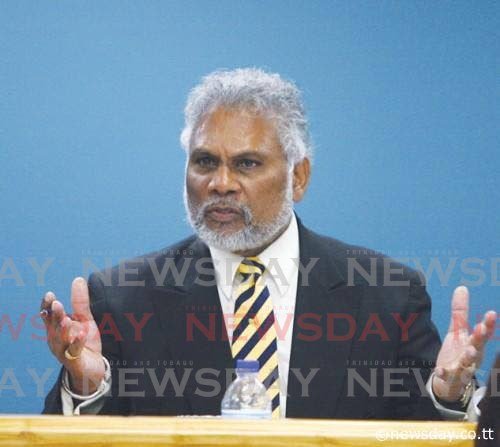Attorneys Maharaj, Khan support access for vaccinated only

HUMAN rights attorneys Ramesh Maharaj and Israel Khan on Friday both supported the Prime Minister's suggestion of access to recreational spots for vaccinated individuals, as the country continues to grapple with the covid19 pandemic.
Dr Rowley had earlier told a briefing in Tobago that "restaurant in-house dining, casinos, cinemas and hopefully bars" could reopen at month-end for vaccinated individuals.
Newsday asked the two senior counsel if any "vaccinated-only" access was akin to rightly debarring entry to a filthy person or was it discrimination.
Maharaj said Rowley was right.
"Under the Constitution of Trinidad and Tobago there is a guarantee of the right to life and the Government has a responsibility and a duty under the Constitution to protect and take proactive measures to protect the lives of individuals.
"I think a government is entitled to mandate vaccines, where if you do not mandate it, individuals can go and communicate a disease, an infectious disease, to others and affect their lives. I don't see the difficulty in people understanding that this is a pandemic, it is a dangerous virus, it can kill, it has killed and it is killing more.
"A government has a duty to take steps, proactive steps, to prevent people from dying. Therefore if it means mandating masks, mandating vaccines to enter their place of employment or to enter cinemas or for children to go to school, I think the Government is entitled to do that.
"They have a duty to do that."
Maharaj said the present law of TT says a child can only enter primary school if he/she with a certain vaccination certificate.
"Since I was growing up as a child you had to take certain vaccines."
Newsday asked if a collectivist right (to public health) also included an individual's right not to be infected, versus an individual opting to not be vaccinated.
"Yes, and it's more than that. If a government does not do that, an individual can bring a constitutional claim against the government, that the government is violating individual fundamental rights (to be protected from being infected by others).
"In the Constitution there is a clause where the government can pass a law which is unconstitutional as long as it is justifiable in the public interest.
"So I'm saying the government has to uphold the Constitution by protecting the right to life, by taking steps to prevent a person's life from being threatened and they are entitled to take steps to compel persons to take their vaccines, etcetera.
"The individual rights are there to protect all people."
He said services could be accessed otherwise by people not vaccinated owing to medical reasons.
Newsday asked if "mandatory" meant giving a vaccine forcibly.
Maharaj replied, "No, no. Let's say you are employed in building A and for you to enter the building you must have your vaccination certificate. So it is mandatory for you to produce your vaccination certificate in order for you to enter the building."
Khan told Newsday it was "a ticklish" situation, but said the Government could restrict rights in a pandemic.
"What he (Rowley) is indicating is that if you are not vaccinated you cannot go to the cinema. I think he could do that. He could also say those children who are not vaccinated would not be allowed to attend public school and mingle with people who are vaccinated."
Khan said someone might try to test the issue in court, but he reckoned the Government's position would prevail.
"It's a balancing act that the court will decide.
"You see, there's no such thing as an absolute right when it comes to fundamental rights. It could be curtailed for the greater good of the country."

Newsday asked under which law or legal principle the Government could curb an individual's right and endorse a vaccine requirement.
"The Constitution, under the fundamental rights section, gives you the right to freedom of movement such as the right to go to a cinema, restaurant or a public school. You cannot be denied these rights without due process. But it is not an unlimited right. The Government will say the due process is the fact there is a pandemic and you may affect other people."
Newsday asked which laws/principles support a deprivation of certain individual's rights in a pandemic.
"Once the President declares the virus is constitutes an epidemic and is a threat to public health, then the Government could intervene."
Khan made the point that certain public health practices such as vaccination were established in both the common law and statute law of TT from the colonial period and had now prevailed even amid the fundamental rights of the 1962/1976 Constitution.
"I could remember as a child getting injections for measles and polio. That is the existing law at common law. That is the law they are using."
He said the President's declaration of a pandemic now allowed the curtailing of an individual's right to movement.
On the restriction of an individual's rights, Khan said some US courts had charged parents with manslaughter when their child had died after being denied a blood transfusion on religious grounds, although such laws were since amended to favour such parents.
He said some people knowingly infected others with HIV/AIDS were charged with manslaughter. Khan said if a parent refuses to let a child get inoculated and the child dies from covid19, that parent "should be charged for manslaughter."
He said, "You have a duty of care to the world. It's a ticklish situation because all over the world even in enlightened countries like France and the US, they are protesting."

Comments
"Attorneys Maharaj, Khan support access for vaccinated only"